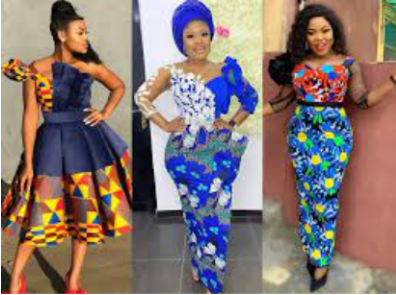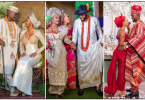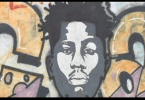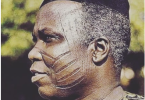As far as Nigerian fashion and beauty trends are concerned, ‘bold and beautiful’ are the clear statements. It is common knowledge that Nigerians are not afraid to explore other nations. You will find Nigerians in virtually every nation on planet Earth. And in so doing, they proudly take their fashion and cultural heritage with them, everywhere they go. It is now clear that the extent of Nigeria’s contribution to global fashion is quite huge. You will find numerous Nigerian citizens, social media influencers, celebrities, and designers, who have popularized Nigerian fashion across Africa and worldwide.
We will be examining the significance of Nigeria’s contribution to global fashion; and how the industry has altogether helped in shaping global fashion trends. Not surprisingly, Nigerian fashion enthusiasts have become paid and unpaid ambassadors of Nigeria’s multi-ethnic cultural heritage. They have equally drawn famed attention from top global fashion brands to the unique creativity and designs that emerged out of Nigeria.
A Quick Overview of Nigerian Fashion
NIgeria is a multi-cultural complex of indigenous ethnic groups (or nations) which date far back into antiquity. Boasting a count of over 250 ethnic groups and 300 distinct dialects, each tribe can proudly speak of creating its own original patterns, fashion, and attire. Thus, certain statement-making traditional attires and fashion designs have emerged from Nigeria. And they have survived urbanization and globalization influences. They continually evolved over the years, as Nigerian fashion designers experimented with them and showcased their creativity.
From the iconic Iro, Buba, Agbada, and Danshiki of Yorubaland; to the attractive double-wrappers, blouses, and Senator attires of Igboland and Niger Delta regions The long Buba, Boubou, styled tops, wrappers, and skirts of Hausaland. The huge variety of colouful beads, scarves, head ties, turbans, and caps for adorning the head and neck. The bags, purses, shoes, sandals and slippers, made from indigenous materials and raw leather. These traditional fashion pieces are an amazing and broad variety; and they continue to evolve.
Furthermore, Nigeria is notable for its diverse textile industry. Such iconic textile materials as Ankara, Adire, Batik, George, Kente, Aso-Oke, Senator, Lace, and much more, are now uniquely identified with Nigerian fashion. Some of them emerged from Nigeria’s diverse regional textile industries (e.g. Aso–Oke and Adire), which stretch far back into ancient times. While some others have evolved from imported brands to stand on their own (e.g. Ankara, George, Lace, Senator, and much more).
These textile materials have become so popular for their broad array of creative, bold and intricate patterns, as well as vibrant colours. Ankara, Batik and Adire are notoriously at the forefront of showcasing Nigeria’s contribution to global fashion in a stellar way. That is not forgetting the extent to which Nigerian fashion designers consistently stretch themselves and their imaginations. They have been using these fabrics to create eye-catching designs. And they do not hesitate to take them to the broadways of Nigerian and international fashion shows at every opportunity.
Celebrating Nigeria’s Iconic Fashion Designers
Nigeria partially owes its growing popularity in the global fashion space to top Nigerian fashion designers, who operate both at home and abroad. They have demonstrated enormous levels of creativity over the years, while combining traditional Nigerian fabrics and designs with foreign ones. They have also collaborated with global fashion brands who are drawn to their bold, attractive designs. Speaking of the likes of Ohimai Atafo, Deola Sagoe, Lisa Folawiyo, Ituen Basi, Amaka Osakwe, Andrea Iyamah, Zizi Cardow, Yomi Casual, Folake Akindele-Coker, Bridget Awosika, and Lanre Da Silva Ajayi. These fashion creatives have impressed, and have even been courted by global fashion brands.
These celebrated fashion designers have made such powerful statements with their fashion pieces that could not be ignored. Their eye-catching fabrics and designs have been featured in international (and local) fashion magazines; and even worn by international celebrities. Notable international celebrities such as Beyoncé, Solange Knowles, and Rihanna have been draped in Nigerian prints and designs. They have repeatedly showcased their works on the red carpet of international and local fashion shows. One such celebrated event is the Lagos Fashion Week – an annual event that attracts both local and global fashion icons and fashion lovers.
And thankfully, other fashion events continue to spring up across the country each passing year. These events have given upcoming Nigerian fashion designers and textile dealers the required exposure to the international community. They have become perfect opportunities to flex their creative muscles.
Opportunities in the Nigerian Fashion Industry
Local and international fashion shows hosted annually, have also become choice platforms for the discovery and promotion of aspiring Nigerian models. The likes of Oluchi Onweagba, Mayowa Nicholas, and Adeola Ariyo, have earned juicy deals through discovery on these fashion shows.
Let us not forget the huge revenue-earning potential of textile fabrics sourced from Nigeria. A good number of Nigerian fashion entrepreneurs have emerged over the years. That includes entrepreneurs whose flourishing businesses deal in exporting Ankara and Adire fabrics to the diaspora.
Very noteworthy is the zeal with which Nigerian influencers, celebrities, politicians, and fashion geeks have been promoting Nigerian fashion. On social media, television and in magazines; at popular local and international events, and in Nigerian movies. These cultural ambassadors have consciously spearheaded the drive to improve Nigeria’s contribution to global fashion, by wearing exciting Nigerian fashion pieces. Thus, the demand for attractive Nigerian textiles and designs in foreign lands is now on the increase.







